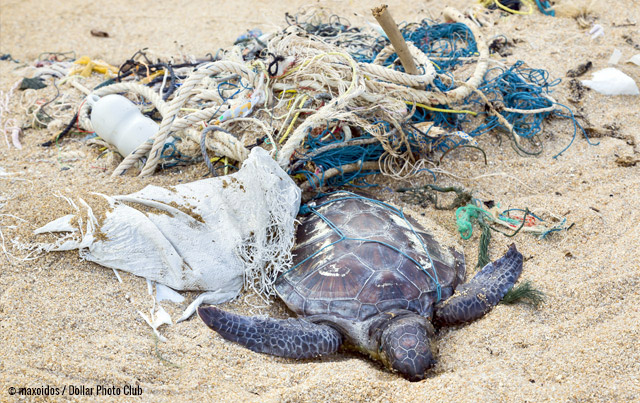
As the search for missing flight MH370 focuses in on the Indian Ocean, this incomprehensible human tragedy is bringing attention to an environmental tragedy… the massive amount of trash in our oceans. Many are shocked to discover there is so much refuge floating freely and especially so far from shore. And it’s not just in the Indian Ocean. There are large gyres of trash in all of our oceans; the North Atlantic, South Atlantic, North Pacific & South Pacific. Made mostly from non-recycled plastics, this trash pollutes the water and chokes marine life.
How does trash get in the ocean?
It happens like this… a plastic drinking bottle is thrown out a window instead of being recycled. A heavy rain comes and washes it into a storm drain, which runs into a small stream, then a major river and finally the ocean.
Similar patterned behaviors have repeated themselves over and over for decades and now we have garbage in and all over the oceans. Cigarettes, cigarette filters, plastic bags and beverage cans are also on the offenders list; EPA’s Marine Debris website states 80% of the over 9 million pounds of trash collected in the coastal cleanup program in 2011 was made of easily recyclable items.
The Hong Kong plastic pellet spill
During the summer of 2012, 150 tons of plastic pellets were spilled offshore from Typhoon Vicente, pouring into the oceans and washing up on shore. While land recovery was participated by hundreds of volunteers, offshore recovery is a whole other matter.
Today’s current cleaning efforts regarding the garbage dump in the ocean focus on larger object recovery, where the material can be recycled. The main hurdle with plastic recovery is when it becomes smaller and broken down; recovery is more difficult and it’s harder for collectors to retrieve without affecting local wildlife.
In this case, the Hong Kong cleanup was already at a size disadvantage. While at least 47% percent was retrieved by the manufacturer and volunteers, it’s unlikely it will be fully achieved. These pellets, along with other plastics, have the potential to dissolve into tiny chunks, and eventually degrade to a fine film traveling to the ocean floor. Even then they pose an issue as plastic has been shown to continually absorb harmful organic pollutants over time. Oceanic life ingests this; eventually working these chemicals throughout the food chain.
Can we clean the ocean and it’s recovery be improved?
While current methods may struggle with efficiency and sustainable profitability, there is new hope on the horizon with the pilot project; The Ocean Cleanup. Currently in testing, this unique concept features 2 long filtrate booms to collect plastic particles while separating valuable plankton. Using this method, the cleanup would take 5 years. The Ocean Cleanup project also aims to be as green as possible; using the sun and ocean current for energy.
Can corporate social responsibility help?
Investing in green technologies, including innovative recycling & programs are vital to preventing trash from ending up in the ocean. Beijing’s subway lines have taken a step with their bottle bills machine, allowing riders to deposit plastic bottles for cash. This project aims to improve recycling rates through the instant satisfaction of the user.
Also, implementation of a multi-stream recycling program can ensure your recyclables are properly disposed of & can reduce your hauling fees. Additionally, embracing the use of alternative packaging that is either recyclable and/or composed of recycled content can aid the success of participation.
Recycling is essential EVERYWHERE, from the coast to the center of a continent. It’s important at home, at school, at work, at the mall, at the park and yes, even at the beach. Much of the trash floating in our oceans today could have been placed in recycling bins where it would be recycled, re-purposed, or even upcycled. As long as recyclables are carelessly discarded, they will continue to drain garbage dumps into the oceans.







































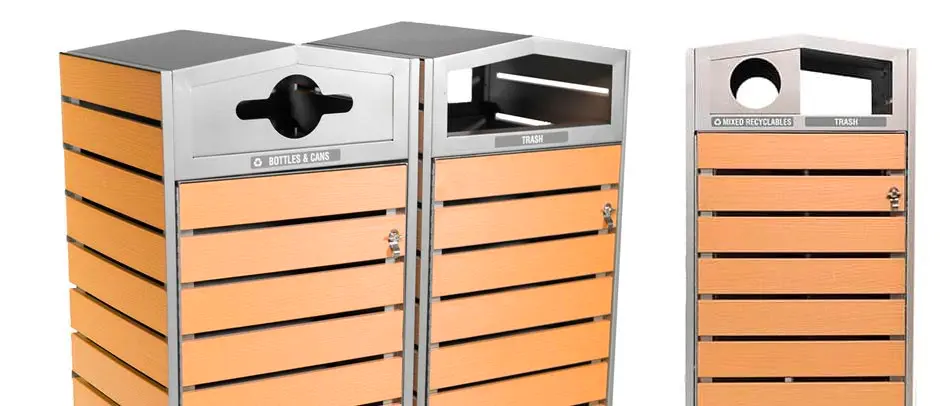













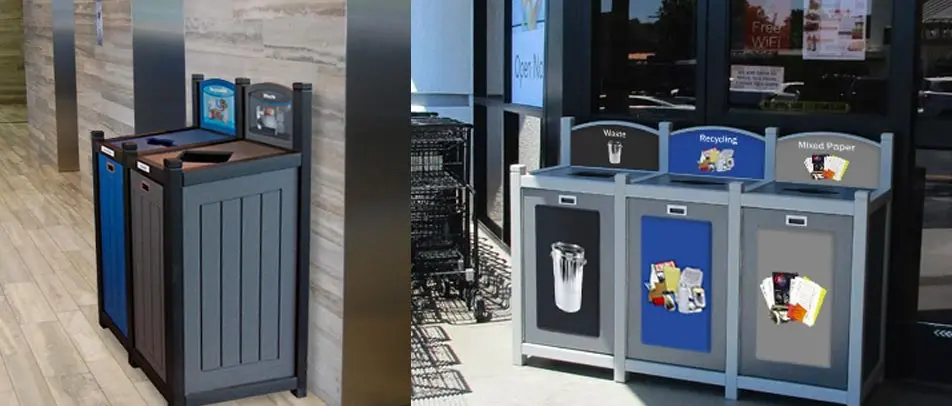






















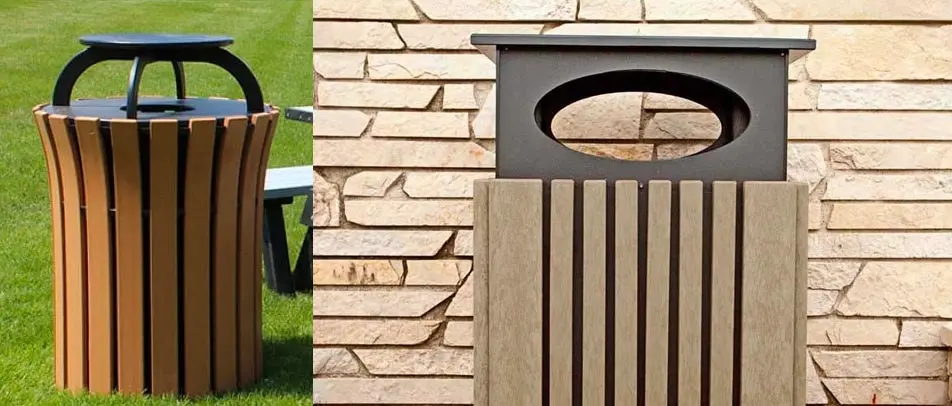






















































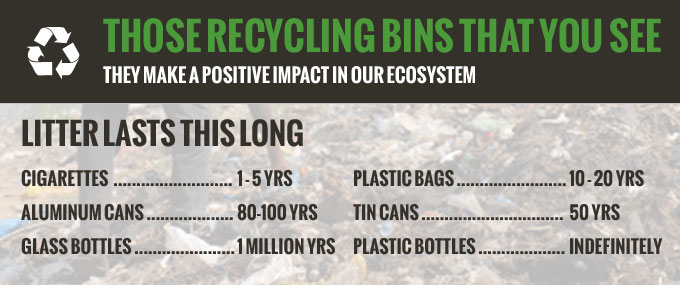 Those Recycling Bins That You See - They Make A Positive Impact In Our Ecosystem
Those Recycling Bins That You See - They Make A Positive Impact In Our Ecosystem  3 sustainable uses of recycled plastic
3 sustainable uses of recycled plastic  How Can I Start A Recycling Program At Work?
How Can I Start A Recycling Program At Work? 
